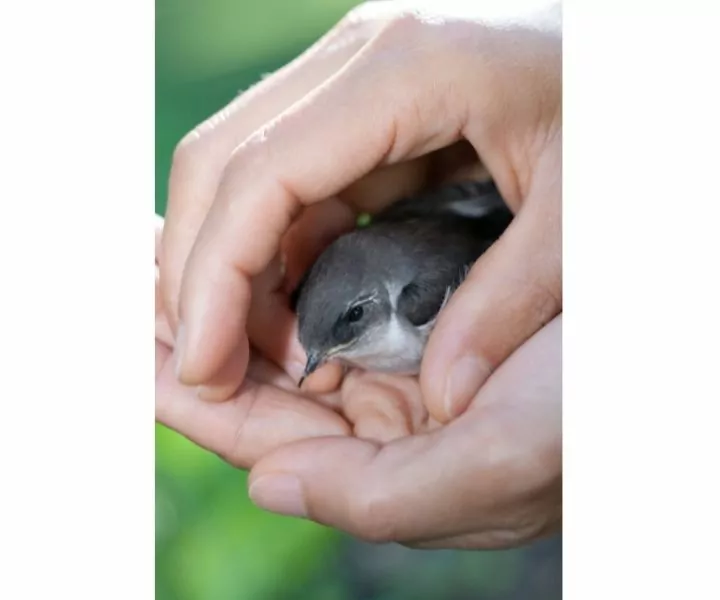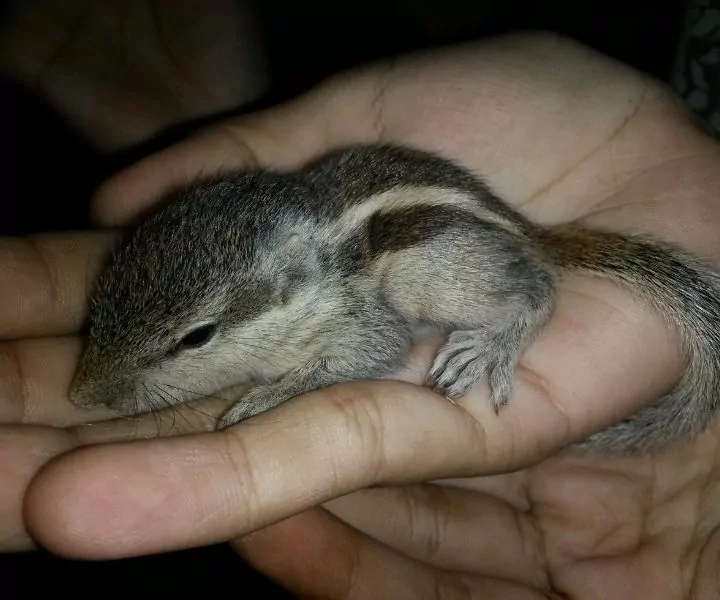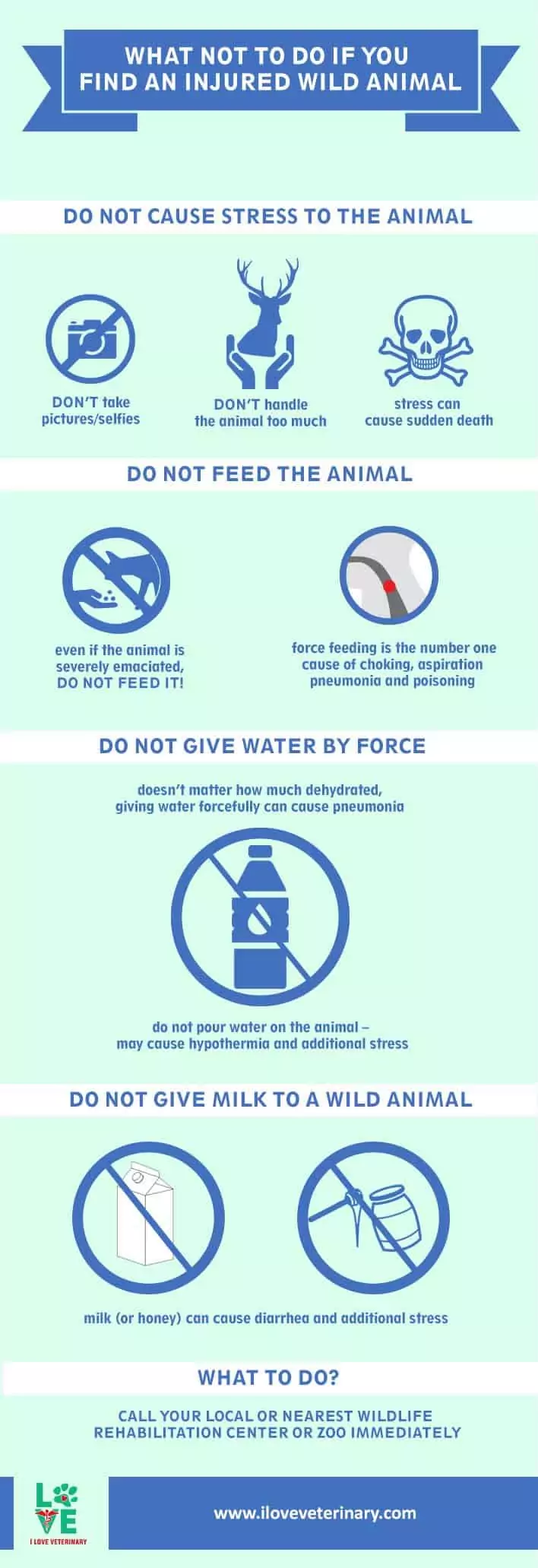Did you find an injured wild animal on the side of the road? Or in the woods while hiking? If you would like to know how to help an injured wild animal, check out our advice below.

Unless you have training in the veterinary field, handling wildlife, or similar, the best thing you can do for an injured wild animal is to call your local wildlife veterinarian or nearest wildlife rehabilitation center or ZOO immediately. Please don’t play doctor because you might end up hurting the animal even more.
Spring is primarily that time of year when people who love animals tend to intervene when they see injured and/or newborn wildlife. However, you should be careful and not meddle in too soon. We completely understand that you share our passion for helping animals, but sometimes, your good intentions might do more harm than good!
For example, it might very well be the case that a newborn animal was left alone for a while as their parents went to look for food.
What NOT to Do if You Find an Injured/New Born Wild Animals
Here are some helpful wildlife tips and tricks for dealing with animals that may or may not be orphaned and/or injured:
- DON’T attempt to remove or touch the baby animal, unless you are 100 percent certain that it has been abandoned or is gravely injured.
- If you notice a newborn animal that appears to be abandoned by it’s parents, it is advisable to observe the situation from a distance for a while, so that you don’t scare it’s parents off from returning. Many animals return by dawn or dusk to their young after going on a hunting/feeding spree. Another question to ask yourself is whether the animal looks stricken. For example a baby bird chirping with clean feathers and bright eyes is probably not abandoned and might be learning to fly. The only exception to birds specifically is a waterfowl. Waterfowl parents never leave their babies unattended.
- DO NOT give wildlife any food or water. Wildlife veterinarians have stated that the leading cause in death of animals that have been brought to them after being found by humans is due to forced food and water given – however with the best intentions, us ordinary humans don’t posess of the required knowledge when it comes to the behavior and nutritional requirements of wildlife.
What SHOULD You Do When You Find
Newborn/Injured Wildlife?
The story of an injured animal always tugs at the heartstrings, but what should you do if you find an injured animal?
- If the injured or baby animal does require medical or other assistance, contact your local wildlife rehabilitator or veterinary practice for guidance.
- Wash your hands and sanitize them throughly after handling any wild animal.
If wildlife rescuers can’t be found in your area, here’s what you can do:
Baby Bird
If you cannot find the nest, place the bird in a small basket lined with a soft towel and hang it in the shade until you can locate a wildlife rehabilitator.
Call your state game warden or conservation officer if you find an adult wild animal that has been hit by a car or injured in some other way.
Wild Animal Babies
Baby wild animals rarely survive, even with human intervention. If possible, leave them where they are unless they are seriously injured or endangered.

- Gently pick up the bird with gloves on under its belly. You don’t want to touch the bird itself with your bare skin because it could spread germs and cause disease. If you’re not wearing gloves, wrap a towel around your hand and arm before touching the bird.
- Never put the bird into its nest or ventilate the nest hole. Place the bird in a cardboard box, tinfoil-lined paper cup, or soft-sided tote. Keep it out of direct sunlight and place it in the shade if possible for at least 24 hours.
- Use an unplastic bag, pillowcase or other container to keep the bird warm and still for at least 24 hours. Check small birds every couple of hours to make sure they are still alive and not drying out.

